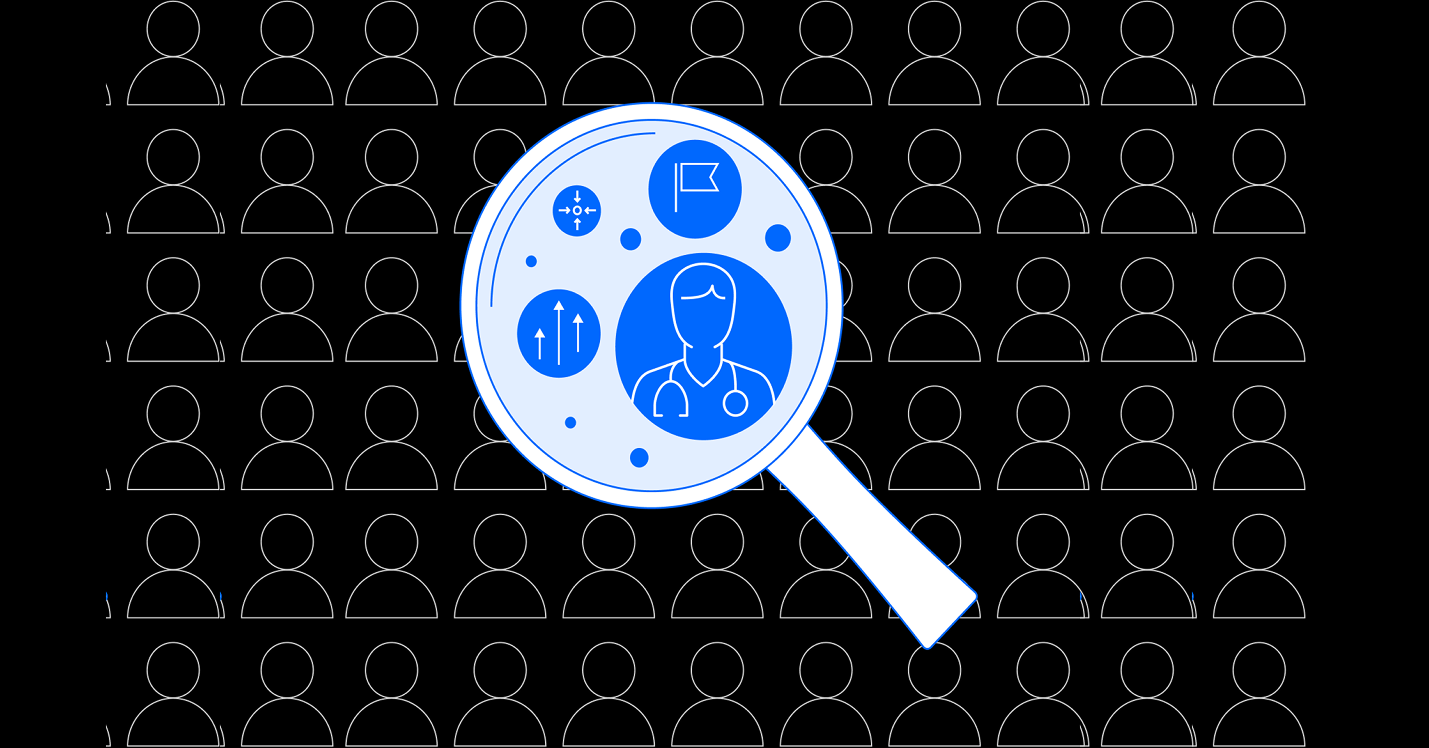When working to stay up-to-date on the latest technological trends, pharmaceutical business teams must determine which tech tools are here to stay and which are simply fads. In the pharma industry, the use of artificial intelligence (AI) and predictive analytics has skyrocketed in recent years, touching every aspect of the market, from drug discovery to business operations. Predictive analytics technologies have become valuable tools for pharma companies because they allow teams to better understand their customers and make more informed decisions when evaluating what comes next in their market. Because of these powerful applications, AI and predictive analytics are here to stay for the future of pharma.
How are pharma companies using AI today?
The most sensationalized way that AI and predictive analytics are used in the pharma industry today is for drug discovery and patient selection. AI algorithms analyze large amounts of data and identify patterns that can help researchers better understand the mechanisms of a disease or better identify which patients will respond favorably to a drug. In these contexts, AI tools help pharma companies develop more effective products and save time, resources, and improve patient lives.
Pharma companies are also using AI and predictive analytics to improve their sales and commercial teams' operations. For example, companies can use these technologies to:
- Integrate and review insights from multiple large datasets in a simplified summary on one platform.
- Streamline sales call planning for more personalized HCP interactions and better-tailored conversation starters and pitches. This means less time and effort spent on pre-call planning for sales reps and more time spent engaging with HCPs.
- Discover HCPs not currently in their network.
- Predict which HCPs will be most interested in what products at what time to adjust marketing and tailor messaging for higher HCP engagement.
- Build sales and marketing budgets that match predicted future needs based on historical data and current market trends.
- Rapidly identify areas with opportunity for growth or risk for decline in market share and adjust resources and messaging accordingly.
- Meaningfully segment HCPs for more effective digital targeting and messaging.
- Identify the most powerful channels to connect with the right HCPs at the right time.
- Enhance pharma product launch strategies.
- Alleviate promotion / advertising spend inefficiencies.
Predictive analytics tools help companies tailor their sales and marketing strategies to better meet the needs of their customers, making better use of budgets while also getting your therapeutics to the right patients faster. For example, companies using the AI-driven MAPTUAL Field tool to empower their sales reps experienced a 6% increase in new patient starts over a six-month timeframe.
“AI tools are unbelievably important. This technology enables you to decrease costs and reduce the number of reps.” - Chief Commercial Officer of a Small Pharma Company
.png)
What’s the risk of waiting to adopt AI?
Despite the many benefits of AI and predictive analytics, some companies in the pharma industry have been slow to adopt these technologies. This can put them at a competitive disadvantage, as companies that are using these technologies are better able to understand their operations and make more informed decisions.
For example, a company that is not using predictive analytics to forecast market demand may end up over-allocating sales resources to one geography while ignoring an area with greater opportunity. This can lead to wasted resources, lost revenue, and the risk of losing market share to a competitor.
Transforming the pharma industry
AI and predictive analytics have the potential to revolutionize the healthcare industry over the next decade. Currently valued at $900M, the global AI in pharma market is projected to reach over $9B by 2030, driven by the incredible value these tools bring to pharma companies. A recent GSR Ventures survey of healthcare venture capital firms found that over half were focused on startups using AI to reduce workload and improve outcomes.3 For many companies, a great portion of AI’s value lies in more efficient sales and marketing that helps personalize HCP interactions and better connect medications with the patients who can benefit from them.
“We are a 100% ‘remote field force’ and we are investing heavily in IT analytics and tools for this multi-billion dollar business unit.” - Director of Sales Ops, Top 10 Pharma Company

Technology that drives sales
The use of AI and predictive analytics in the pharma industry has become increasingly important in recent years, and this trend will continue in 2023 and beyond. These technologies help companies make more proactive business decisions and deliver more robust results. Companies that do not adopt them risk falling behind their competitors.
ODAIA’s MAPTUAL platform uses AI technology to help pharma companies accelerate their sales and marketing strategies. Download the ODAIA MAPTUAL Field Case Study to learn more about how a Top 10 Pharma company is using MAPTUAL Field to improve operational efficiency and to empower their commercial teams to leverage the power of AI driven predictive analytics to prospect, qualify and engage HCPs, which in turn helps reduce patients’ time to therapy.
References







